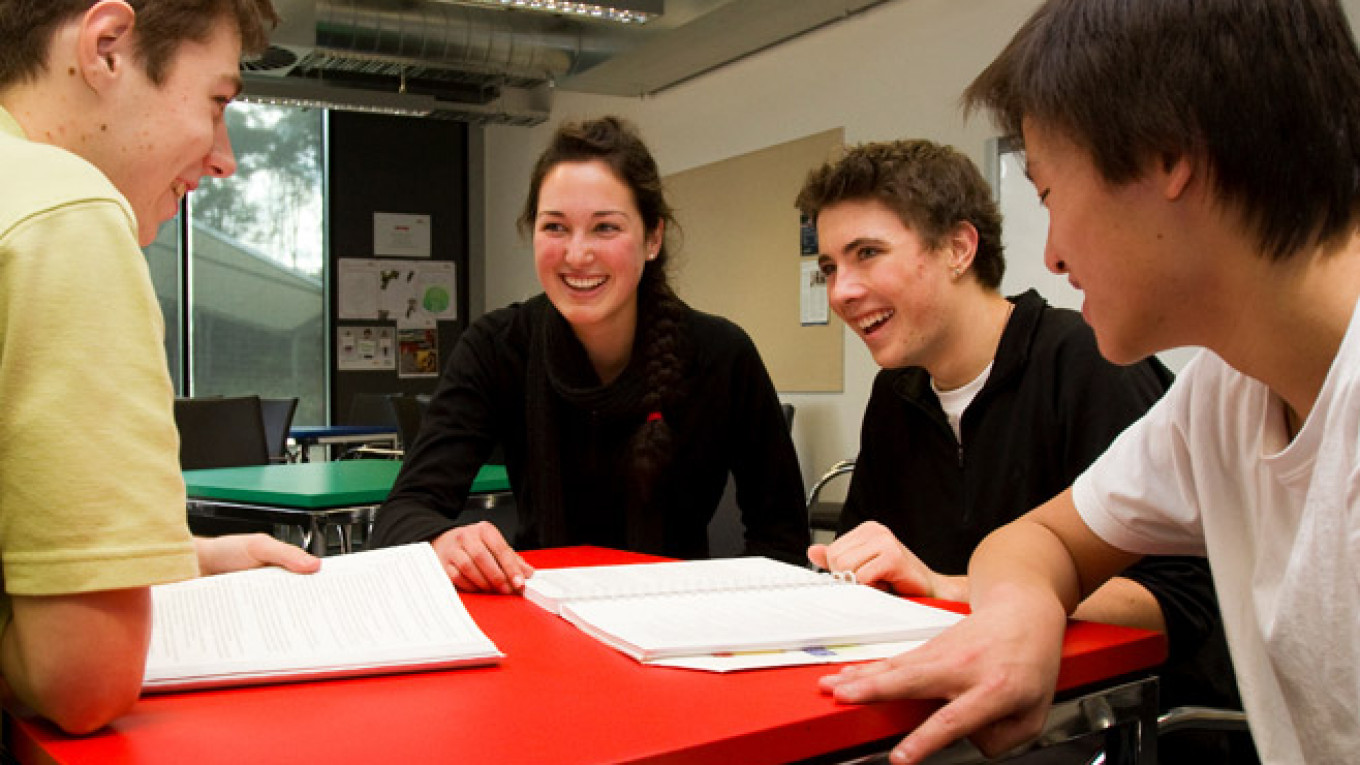Student exchange programs between Russia and the United States are in grave danger. This crisis peaked in October 2014 when Russia pulled out of the Future Leaders Exchange Program (FLEX), which brought more than 8,000 Russian high school students to stay with American families.
Russia's exit from this program can be seen as collateral damage of poor U.S.-Russia relations stemming from the Ukraine crisis. But, in truth, this trend — which has been in the making for years as Russia has chased out organizations supporting these exchanges — threatens to undermine the security of both countries in the long term.
Student exchanges allow young people to gain a more informed perspective of other countries and cultures. This is particularly important for future political leaders and policymakers. Getting to know your proverbial international dancing partner at an early stage means that strong relationships can be built early.
With this precise idea in mind, the Institute for U.S. and Canadian Studies of the Russian Academy of Sciences (ISKRAN) and Center for International and Security Studies at Maryland (CISSM) launched a partnership more than a decade ago in which Russian graduate students would have the chance to interact with American public policy students. Since its inception, the program has allowed more than 80 Russian graduate students to come to the United States.
This joint program enables Russian policy students to participate in short-term joint exercises with U.S. policy students on pressing global dilemmas, such as the Iranian nuclear negotiations and the Syrian conflict.
It also enables select students to participate in a semester of policy analysis and discussion as part of high-level seminars and as research assistants at CISSM.
Students have taken significant lessons away from their work together. First and foremost, students are often surprised at how much common ground can be found between Russia and the United States once one gets beyond the often harsh rhetoric of political leaders on both sides.
Russian students can be pleased to find that U.S. policy students see a very special role for Russia when it comes to dealing with such flashpoints as Iran and Syria.
Many also discover that U.S. policy students and experts are happy to acknowledge that overarching 21st-century security issues, such as global terrorism and nuclear maintenance, would be extremely difficult to solve without Russian participation.
Although the Russian government may see student exchanges as a form of interference in internal affairs, the international security benefits are such that it is in the national interests of both countries to renew and reinvigorate their student exchange programs. The strategy of linking educational cooperation to major political disagreements will take an unacceptable toll on the bilateral relationship.
Instead of waiting on the resolution of outstanding disputes, Russia and the United States should agree to insulate exchange programs from political disagreements, thereby preventing the present from disrupting the future.
Exchange should be treated much like a diplomatic mission and be recalled only in the direst of circumstances, in which the students themselves are in imminent danger.
The students are not in danger. We are in a situation of high tensions and strained relations. These circumstances call for a very different policy, one of more student exchanges, not fewer. Cooperation in this sphere is more important than ever.
Student exchange is not an act of infiltration, but rather one of confidence building.
For all of the grievances between Russia and the United States, student exchange is not one of them. Allowing exchange programs to become casualties of the current trend of withdrawal from security cooperation would be harmful to the United States and detrimental to Russia.
Ekaterina Kudrina is a graduate student from the Institute for U.S. and Canadian Studies of the Russian Academy of Sciences, and spent a semester at the University of Maryland School of Public Policy. A. Paul Massaro III is a graduate student at the University of Maryland School of Public Policy and a Robertson Foundation for Government fellow.
A Message from The Moscow Times:
Dear readers,
We are facing unprecedented challenges. Russia's Prosecutor General's Office has designated The Moscow Times as an "undesirable" organization, criminalizing our work and putting our staff at risk of prosecution. This follows our earlier unjust labeling as a "foreign agent."
These actions are direct attempts to silence independent journalism in Russia. The authorities claim our work "discredits the decisions of the Russian leadership." We see things differently: we strive to provide accurate, unbiased reporting on Russia.
We, the journalists of The Moscow Times, refuse to be silenced. But to continue our work, we need your help.
Your support, no matter how small, makes a world of difference. If you can, please support us monthly starting from just $2. It's quick to set up, and every contribution makes a significant impact.
By supporting The Moscow Times, you're defending open, independent journalism in the face of repression. Thank you for standing with us.
Remind me later.






